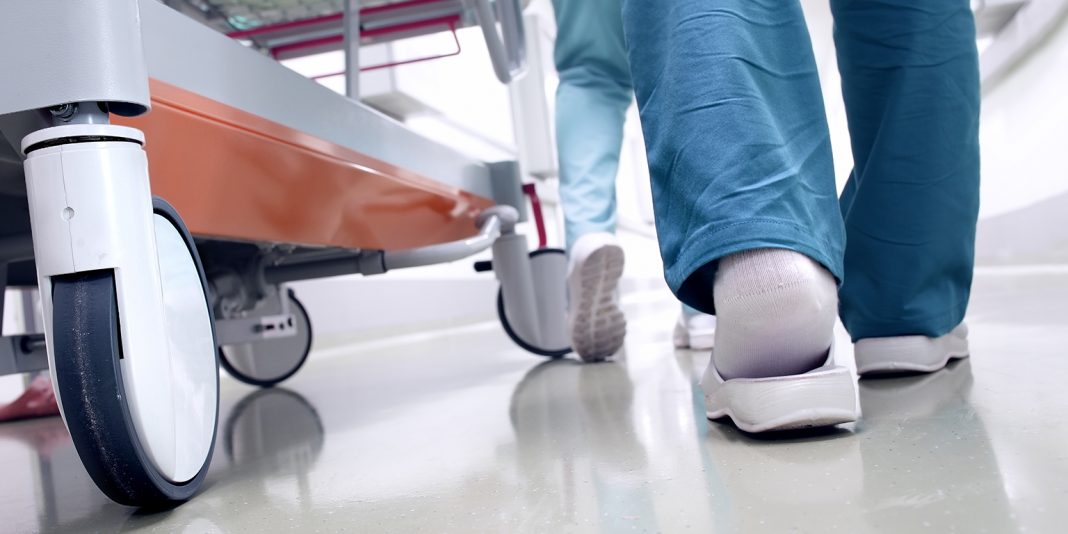Medical staff around the country have been abused and attacked by patients almost 14,000 times since 2012.
Staff at district health boards (DHBs) around the country have been head-butted in the face, had urine poured on them, faced death threats and the threat of gang attacks, had knifes, razors and other home-made weapons pulled on them, been spat on, punched in the head or face and strangled.
Those are just some of the more than 3800 recorded attacks on staff by patients and visitors. More than 5300 cases of verbal abuse and threatening behavior have also been reported.
Sixteen of the country’s 20 district health boards released figures to the NZ Heraldunder the Official Information Act.
The most common type of injury was general pain or discomfort, followed by bruises or contusions. The figures showed a large proportion of the assaults were in mental health and intellectual disability units.
MidCentral District Health Board recorded 2792 incidents since 2012 – the highest number of the DHBs which responded – although there were very few physical assaults.
A MidCentral DHB spokesperson said staff were trained to report all incidents regardless of whether they physically harmed. Sometimes staff were involved in a number of incidents with the same patient and each was recorded separately.
Capital and Coast District Health Board recorded the second highest number of incidents overall (2569) and by far the highest number of physical assaults (1617).
In one case a patient stabbed a nurse just below his eye with a plastic knife and in another a nurse had a cup of boiling water poured over them.
In a 2015 analysis on the issue, employees reported a lack of staff and the removal of mental health safe rooms as barriers to safety. The report also recorded concern there was faeces in gaps in the walls, doors were rotting because they were soaked in urine and security staff were issued with slash-proof gloves.
Capital and Coast general manager of corporate services Thomas Davis said the vast majority of assaults on staff occurred in the mental health, addiction and intellectual disability services.
“We have some of the most complex clients in the country. We also experience a high number of assaults on staff in our emergency department,” he said.
“We encourage staff not to tolerate threatening physical or verbal behaviour, and they are trained in de-escalation techniques. There are protocols to follow if they cannot calm someone who is acting inappropriately.”
Whanganui District Health Board prepared two reports on aggressive incidents last year. They found that last year alone staff were spat on, had urine tipped on them, were head-butted in the face, faced with sexually offensive behavior, threatened with home-made weapons, scissors and hidden knives, received death threats and threats of gang reprisal, were slashed at with a razor, were punched, kicked spat at and bitten.
Recommendations from the reports suggested reviewing the times security staff were on site, reminding staff about how to use trespass notices, developing a tool to help staff determine when police needed to be involved and creating discussion about the under-reporting of aggressive incidents.
Erin Polaczuk, national secretary for the Public Service Association which represents 26,000 health workers and is the country’s mental health union, blamed current models of care and $2.3 billion in government underfunding for the problem.
“It’s easy to point fingers at a mental health service user assaulting a staff member,” she said. “But we have to remember we are talking about people who are incredibly unwell.
“We need enough staff to ensure service users get the care and support they need and which is essential to keeping everyone safe.”
Mrs Polaczuk said mental health staff were fatigued from 16-hour shifts, needed to cover vacancies, could not be expected to provide the level of support needed.
Polaczuk said some staff had been assaulted so badly they had received brain injuries and could no longer work.
She believed the number of assaults would be much higher than what was reported.
New Zealand Nurses Organisation chief executive Memo Musa said the problem was not new and they were continually working with DHB managers to make staff safer.
“Nurses must be protected from verbal and physical abuse, so they can put their energy into providing the care which people need in a safe environment,” Musa said.
“People are coming to hospitals sicker than in the past and they are waiting longer, therefore are more frustrated and agitated by the time they are seen.”
Labour’s health spokesman Dr David Clark said the number of assaults on hospital staff was unacceptable and symptomatic of growing problems with mental health and addictions.
“Underfunding in our health system is contributing to a rise in assaults as over-worked and isolated staff and patients have no-one they can call on as conflict presents and escalates.”
It had resulted in bed closures and was making it difficult to recruit and retain staff, he said.
Health Minister Dr Jonathan Coleman said: “As employers I expect DHBs and the Ministry of Health to provide a staff working environment and take any concerns around staff safety seriously.”
Karate chopped in the neck
One nurse has been off work with serious neck issues for more than a year after being karate chopped in the neck by a patient.
The man, who spoke on condition of anonymity, has been working in the mental health are for 42 years but was seriously injured while working in a forensic psychiatry in-patient unit in May last year.
“The patient just went berserk in the dining room. The nursing staff restrained him like they are meant to do. I rushed in as well and the nurse that was looking after him said, ‘let him go’, so they let him go and he went berserk.
“I turned my back to get away and he karate chopped me on the left side of the neck.”
He has a painful and stiff neck and has been unable to work since. He is on the public waiting list for major spine surgery but would soon have to go back to work on light duties.
The nurse said attacks on staff were common. He knew one person who had been hit in the head with a piece of wood and was unlikely to ever work again.
“It happens all the time. It’s appalling,” he said.
He said staff numbers needed to be increased so patients could be better managed and abuse avoided. There also needed to be more training in calming and restraint of aggressive patients.






















